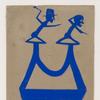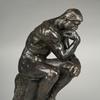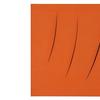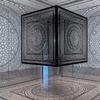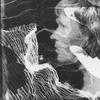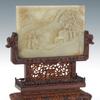National Museum of Women in the Arts Exhibits Work by Polly Apfelbaum in 'Chromatic Scale'
- WASHINGTON, DC
- /
- February 09, 2017
The National Museum of Women in the Arts (NMWA) presents Chromatic Scale: Prints by Polly Apfelbaum, on view March 10–July 2, 2017. Polly Apfelbaum (b. 1955, Abington, Pennsylvania) employs striking colors and bold abstract shapes—alternately geometric and organic—in her woodcut prints. Chromatic Scale features ten prints, and explores Apfelbaum’s distinctive approach to the printmaking process and how it relates to her work in painting, sculpture and installation.
Including selections from the museum’s collection as well as complementary loans, Chromatic Scale provides a focused study of Apfelbaum’s print work, a part of her oeuvre that has not been extensively studied, and examines how the artist extends the conventional boundaries of color and technique. This exhibition continues NMWA’s exploration of innovations in printmaking, a medium in which women have worked since the 16th century.
“In addition to her large-scale fabric and mixed-media installations, Polly Apfelbaum produces dynamic prints characterized by vivid color and bold shapes,” said Curatorial Assistant Stephanie Midon. “Her inventive woodblock techniques place her at the forefront of the medium.”
Although she studied printmaking as an art student, Apfelbaum focuses mainly on large-scale installations and developing her “fallen paintings,” compositions of dyed synthetic fabrics that she places directly on the floor. In 2002, Apfelbaum revisited printmaking processes when she was invited to Durham Press in Pennsylvania. Reflecting influences of Pop and Minimalist art, Apfelbaum uses a range of bold shapes and a broad spectrum of color. Elements of Minimalism in her prints include repetition, a grid, stripes or geometric forms. The bold, simplified flower shapes featured in some of her prints often elicit comparisons to designs used by Andy Warhol.
Because of her prints’ clean-edged shapes and even color, one might assume that Apfelbaum’s works are mechanically produced. In fact, they are meticulously handmade. She incorporates her performative installation practice into her printmaking, improvising compositions from multiple wood blocks that are carved, inked and placed individually. Working closely with master printers at Durham Press, Apfelbaum has woodblocks cut from plywood in shapes based on her hand-drawn doodles. She methodically assigns colors to each block and intuitively arranges them in precise compositions. She pursues a careful balance of color and shape, but must work quickly so that inks do not dry before she is finished.
Across Apfelbaum’s artistic practice, color is the hallmark. She sees color as both structural and emotional, arranging it in precise sequences to elicit a particular mood. Valuing the emotional power of color, Apfelbaum uses woodblocks to create shapes of rich, pure color in her prints. Her works on paper demonstrate an evolution of technique, as she has progressed from using blocks inked with a single color to blending two or three colors on a block. In her most recent prints, she has experimented with more fluid coloring, using a “rainbow roll” technique, in which multiple colors are partially mixed to achieve a continuous gradient effect. Apfelbaum’s intuitive yet ordered process pushes the boundaries of printmaking and color theory.
Chromatic Scale: Prints by Polly Apfelbaum, presented in the Teresa Lozano Long Gallery of the National Museum of Women in the Arts, is organized by the museum and generously supported by the Judith A. Finkelstein Exhibition Fund and the members of NMWA.
National Museum of Women in the Arts
The National Museum of Women in the Arts (NMWA) is located at 1250 New York Avenue, NW, Washington, D.C., in a landmark building near the White House. It is open Monday–Saturday, 10 a.m.–5 p.m., and Sunday, noon–5 p.m. For information, call 202-783-5000 or visit nmwa.org.

